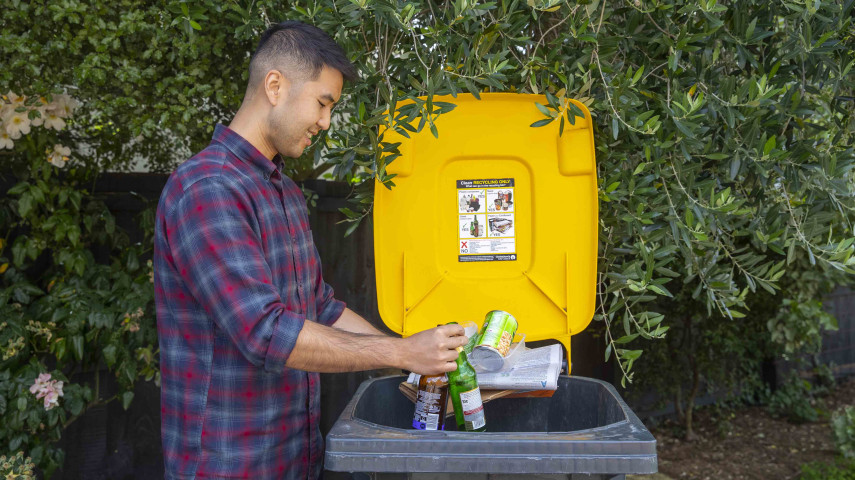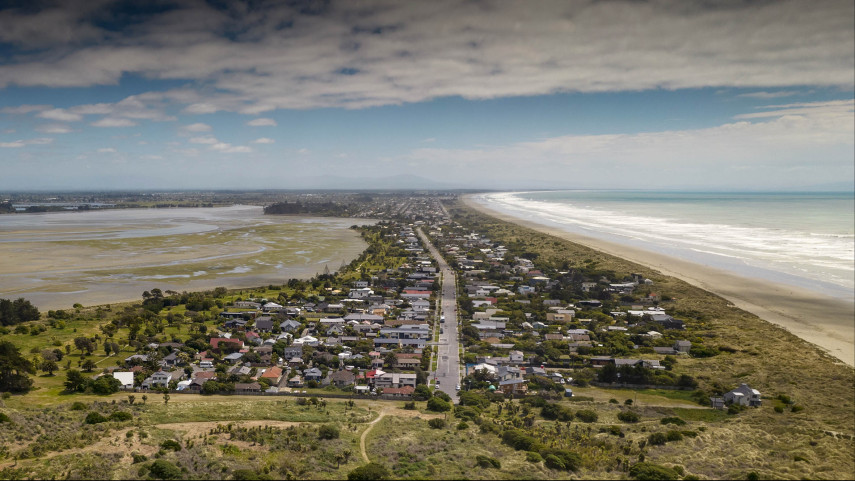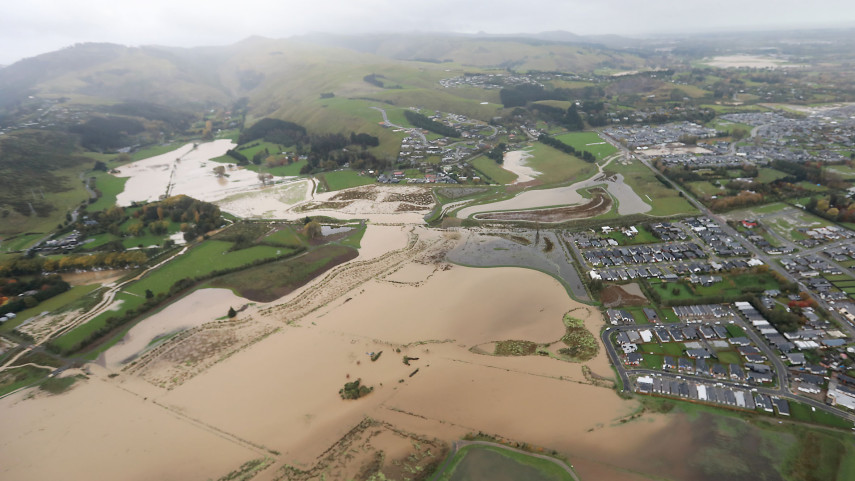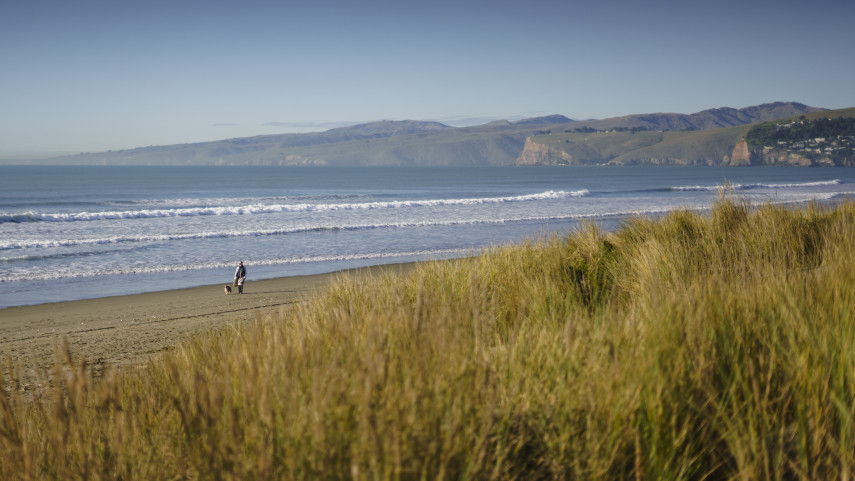Thinking differently about how we use and dispose of our stuff can really reduce our emissions.

Waste disposal accounts for 7% of Christchurch’s greenhouse gas emissions. Preventing waste wherever possible and recycling and composting everything we can make better use of our resources while saving money and reducing emissions.
- When organic matter, like food scraps, leaves, paper or wood, breaks down in a landfill, they generate methane, a powerful greenhouse gas that adds to global warming.
- Avoiding waste altogether is a much better way to reduce emissions compared to recycling, because it avoids all the lifecycle impacts of creating and moving new products.
- Everything you put in your recycling bin gets sorted by a real person, so rinsing your containers makes life much nicer for everyone.
- Recycling one plastic bottle saves enough energy to power a 60-watt lightbulb for about three hours.
- Reusing and recycling items generates an estimated 50 times more jobs than landfilling them.
Avoid waste from the start
Stop waste in its tracks by making the most of what you already have, borrowing rather than buying, repairing things, choosing more durable products, cutting out disposable products and selecting unpackaged goods. Learn more about stopping waste from the start at Rubbish Free NZ(external link).
Buy, sell or gift pre-loved items
Sharing items you no longer need with friends or family is a great way to save money and reduce waste. Christchurch has over 200 second-hand stores. Find a map of them at Remix Plastic(external link).
Recycle and compost using your kerbside collection service
We provide a range of guides, tips, and videos about how to recycle and compost(external link) using the Council’s kerbside collection service.
Discover ways to recycle other items
You can recycle a much wider range of items by using the Council’s EcoDrops and services delivered by others. For example, you can recycle soft plastics, clothing, plant pots, batteries, lightbulbs and mobile phones using services provided by the community. Learn more about doing more to reduce rubbish(external link) and about what EcoDrop Resource Recovery Centres accept(external link).
Book a practical session on waste reduction and recycling
The Council, in partnership with Kate Fenwick of Wasted-Ed With Kate, hosts practical waste education workshops(external link).
Our waste minimisation infrastructure, services and education programmes all aim to make it easier for residents to reduce waste.
We provide a best-in-NZ kerbside collection service for recycling, organics and rubbish and provide drop-off facilities for green waste, household items and potentially hazardous materials at our EcoDrops.
We’re also a partner in our regional landfill, at Kate Valley, which aims to safely dispose of our residual waste.
Turning organic matter into biogas
We’ve partnered with Ecogas to set up a new facility in Christchurch to turn 100,000 tonnes of organics, collected from households and businesses, into biogas. This could help replace fossil-fuel-based gas used in Christchurch. Learn more about the Ōtautahi Christchurch organics processing facility(external link).
Upgrading the wastewater treatment plant to cut emissions
Over half of the Council’s operational emissions come from treating the city’s wastewater. A major upgrade of the facility, following the 2021 fires, will include new technologies able to reduce emissions by around 70 per cent. Learn more about the wastewater treatment plant(external link).
Supporting schools to recycle
We provide resources to support schools and early learning centres to recycle. This includes wheelie bins, posters and other educational materials. Learn more about our assisted kerbside recycling for schools(external link).
Collecting landfill gas for energy
At the Kate Valley and Burwood landfills, methane gas from decomposing organic matter is being collected and used as an energy source. At Kate Valley, the gas is being used to generate electricity, while at Burwood, the gas is being used to power Te Hononga, the Council’s Civic Offices. Learn more about turning landfill gas into energy(external link).
Reusing Council computers
As we shift to modern workstations, surplus or old computers are being shared with not-for-profit community groups to minimise waste and to help support their good work. Learn more about our computers to the community scheme(external link).
Supporting waste-reducing innovation
Our funding supports waste minimisation, such as the Soft Plastics Recycling Scheme, computer recycling by Molten Media Trust, bike recycling by RAD Bikes, food rescue services and more. Learn more about the Waste Minimisation Fund(external link).
Related news

Landmark Southshore resource consent approved
The long-awaited project to build erosion and flood protection structures along Te Ihutai/Avon-Heathcote Estuary edge in Southshore and South New Brighton is set to begin, following the approval of resource consent this week.
4 Feb 2026
New resources to help residents get ready for extreme weather
Residents are being encouraged to take steps to prepare for increasingly severe weather and natural hazards, with Christchurch City Council launching new information to help people ready their homes for the impacts of climate change.
28 Jan 2026
Fund open to support sustainable community initiatives
The Sustainability Fund is open now for applications for projects that help meet the Christchurch City Council’s climate change objective and targets.
1 Dec 2025